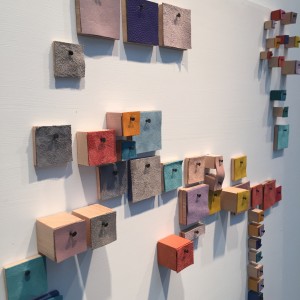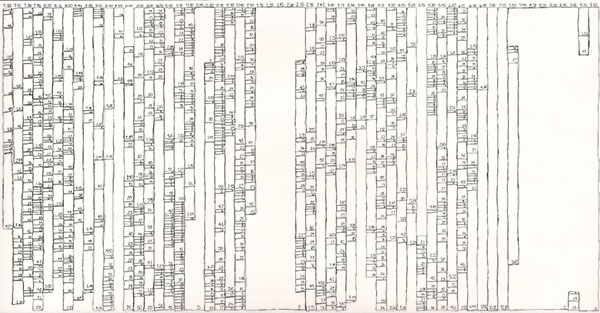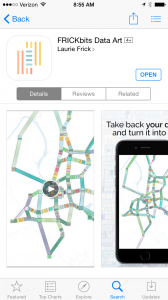Will a data-selfie boost your immune system?
/What does all our personal data add up to? Is it a boon to big data marketers helping companies mine your personal data or just a nightmare scenario for complete loss of privacy? As an artist who grew up in the tech industry and loves technology, I have thought about a future where personal data could become meaningful. Maybe all this vaguely unpleasant surveillance and data gathering about us could turn into a surprisingly insightful view of ourselves and be delivered in ways that will be irresistible. In the future I imagine human data portraits manifested from reams of personal tracking data gathered invisibly as we move thru the day. Genuine data-selfies. We are so close to gathering every possible morsel of data about us, imagine what could be possible once you owned every bit of data gathered about you. After some thought, I decided it’s more than just seeing personal data and abstract patterns of you. It’s about what these patterns will tell us about ourselves. Data collected about us will unfold a personal narrative and story to reveal a hidden part of us we are trained to ignore, a way to know ourselves and anticipate what comes next. Perhaps seeing the abstract patterns and rhythms of your self-tracking data is a short-cut to mindfulness. A quick and dirty way to boost your immune system, the benefits of meditation and self-reflection without much effort.
We describe self-tracking in Calvinist utilitarian terms using fitness and health examples, the real fuel will be the desire to understand ourselves. While social-media, Twitter and Facebook tapped into the basic emotional desire for bonding and connection to other people, the personal data phenomenon will tap into the basic emotional desire to know ourselves. To see yourself, the part of you that’s invisible to you. To understand and anticipate. Who am I?



 The "tyranny of tiny tasks," as Wu called it, may only get more tyrannical if the Apple Watch draws in more developers and users, pushing the smartwatch beyond the early adopter community. Computers shifted us from writing occasional time-consuming letters to writing a mounting number of emails. Smartphones allowed us to fire off an exponentially larger number of emails as well as quicker messages through other applications."
The "tyranny of tiny tasks," as Wu called it, may only get more tyrannical if the Apple Watch draws in more developers and users, pushing the smartwatch beyond the early adopter community. Computers shifted us from writing occasional time-consuming letters to writing a mounting number of emails. Smartphones allowed us to fire off an exponentially larger number of emails as well as quicker messages through other applications." You know who you are by where you are in TIME. When you get knocked out, and come to….the first thing the doctor asks is “what is your name” …and “what day is it?” Who you are and where you are in time is vital to your grasp of consciousness, your sense of self.
You know who you are by where you are in TIME. When you get knocked out, and come to….the first thing the doctor asks is “what is your name” …and “what day is it?” Who you are and where you are in time is vital to your grasp of consciousness, your sense of self. Which is all very curious because I'm investigating the notion that YOU are your time, you are defined by how you spend your time, the activities and even unconscious use of time says loads about your psyche, your personality and your inner-self. Your sense of who you are is based on the recollection of recent events, and what you are doing and intend to do. It's your basic orientation in the world.
Which is all very curious because I'm investigating the notion that YOU are your time, you are defined by how you spend your time, the activities and even unconscious use of time says loads about your psyche, your personality and your inner-self. Your sense of who you are is based on the recollection of recent events, and what you are doing and intend to do. It's your basic orientation in the world.


